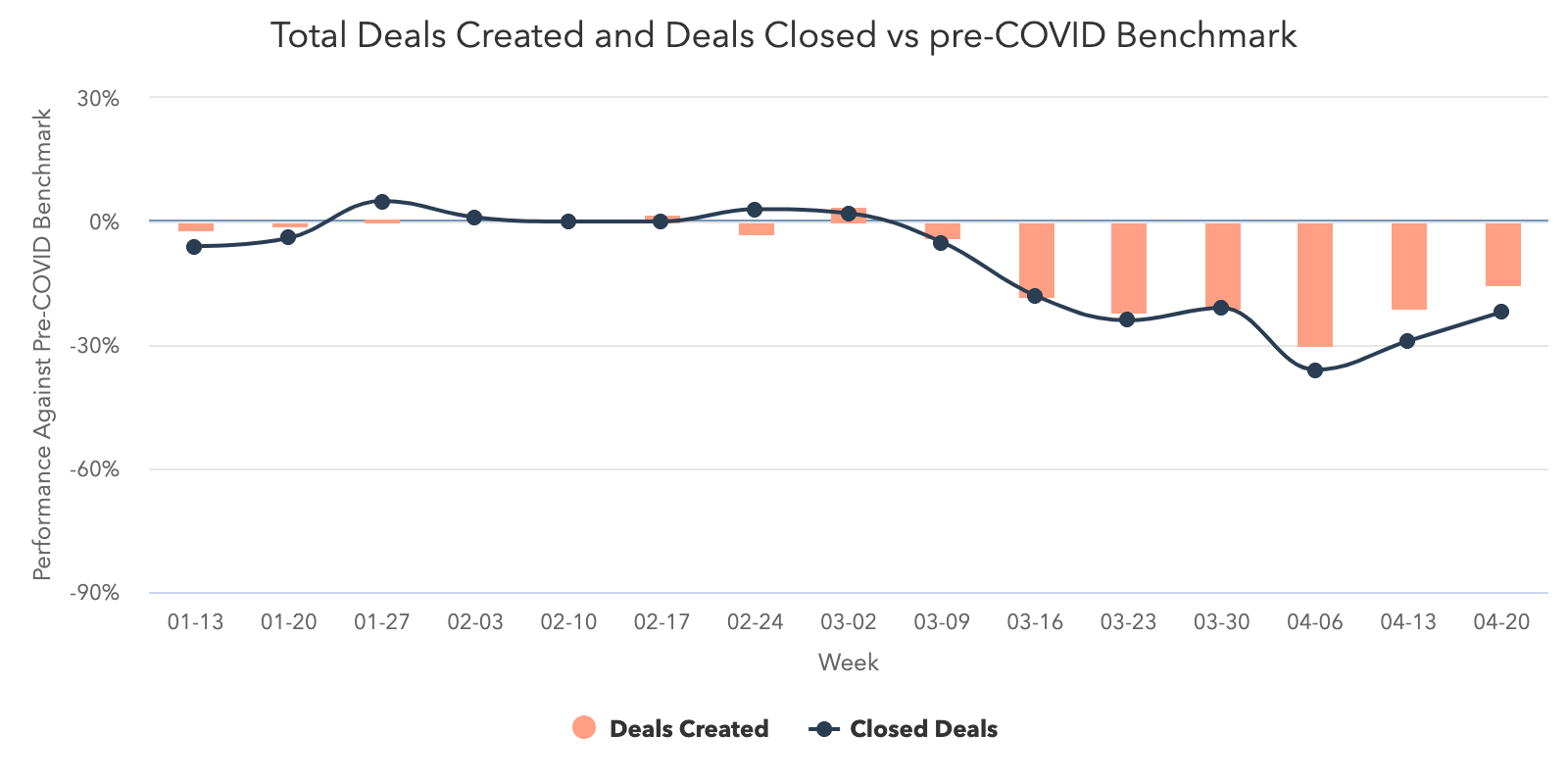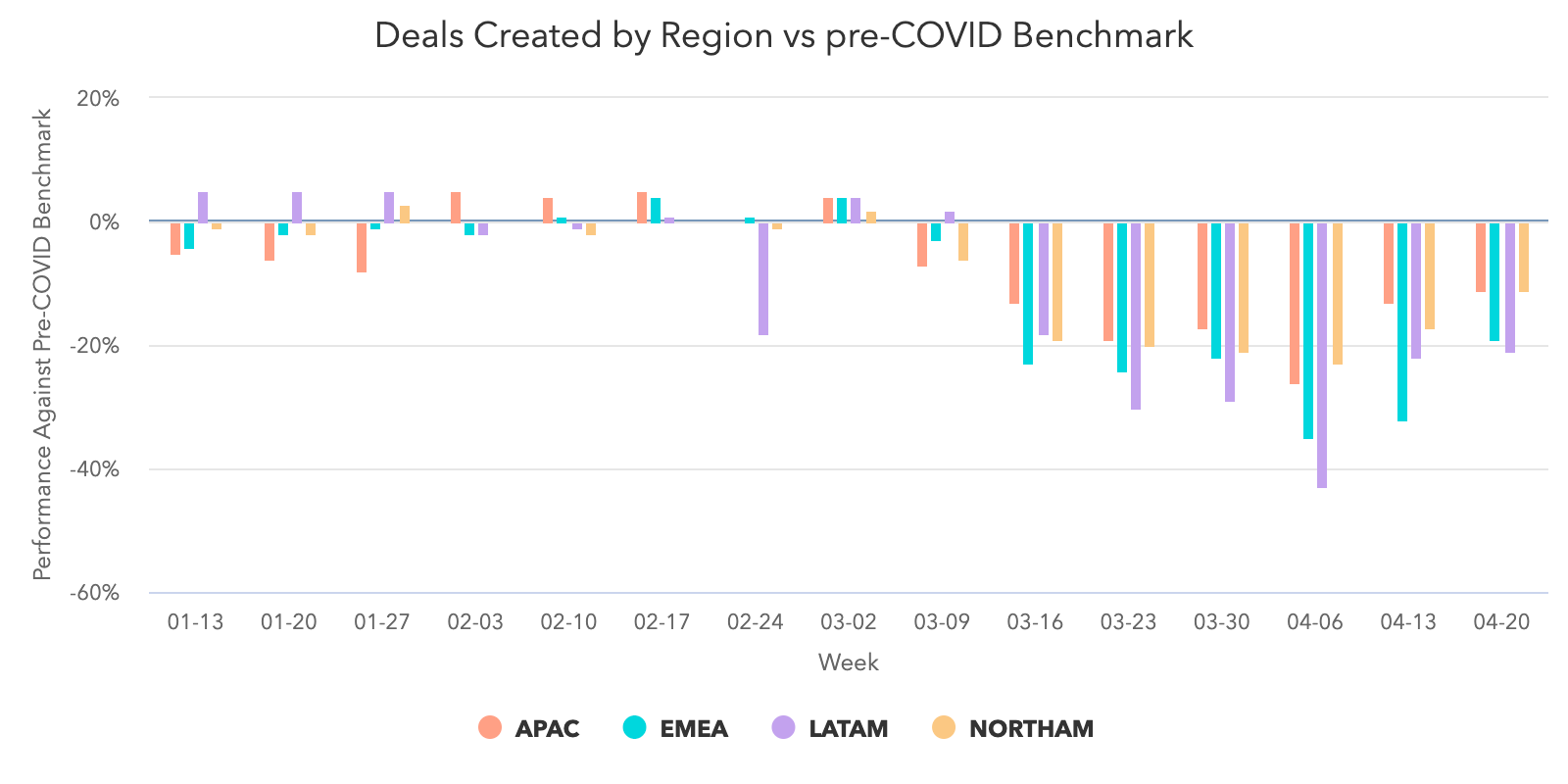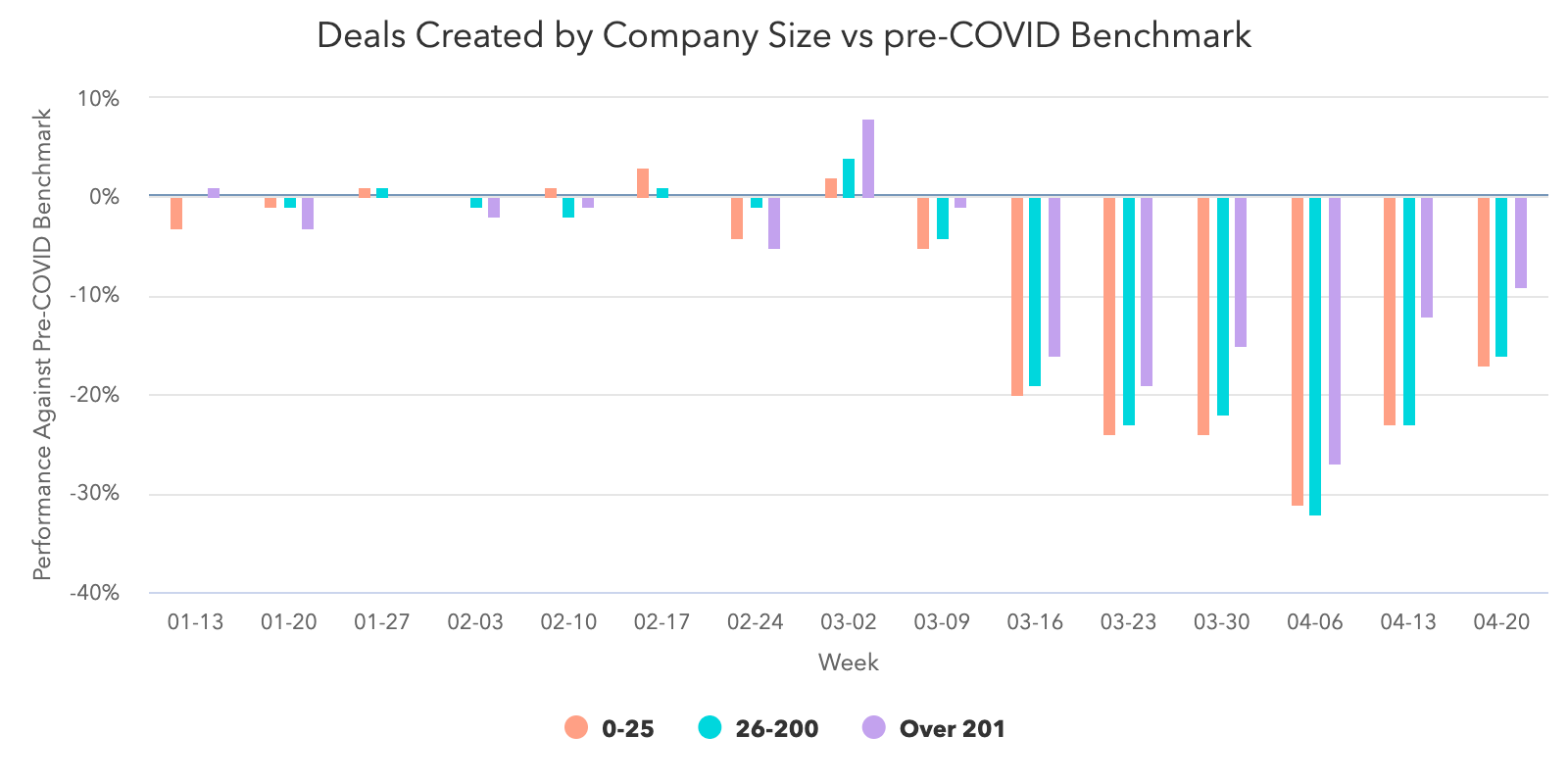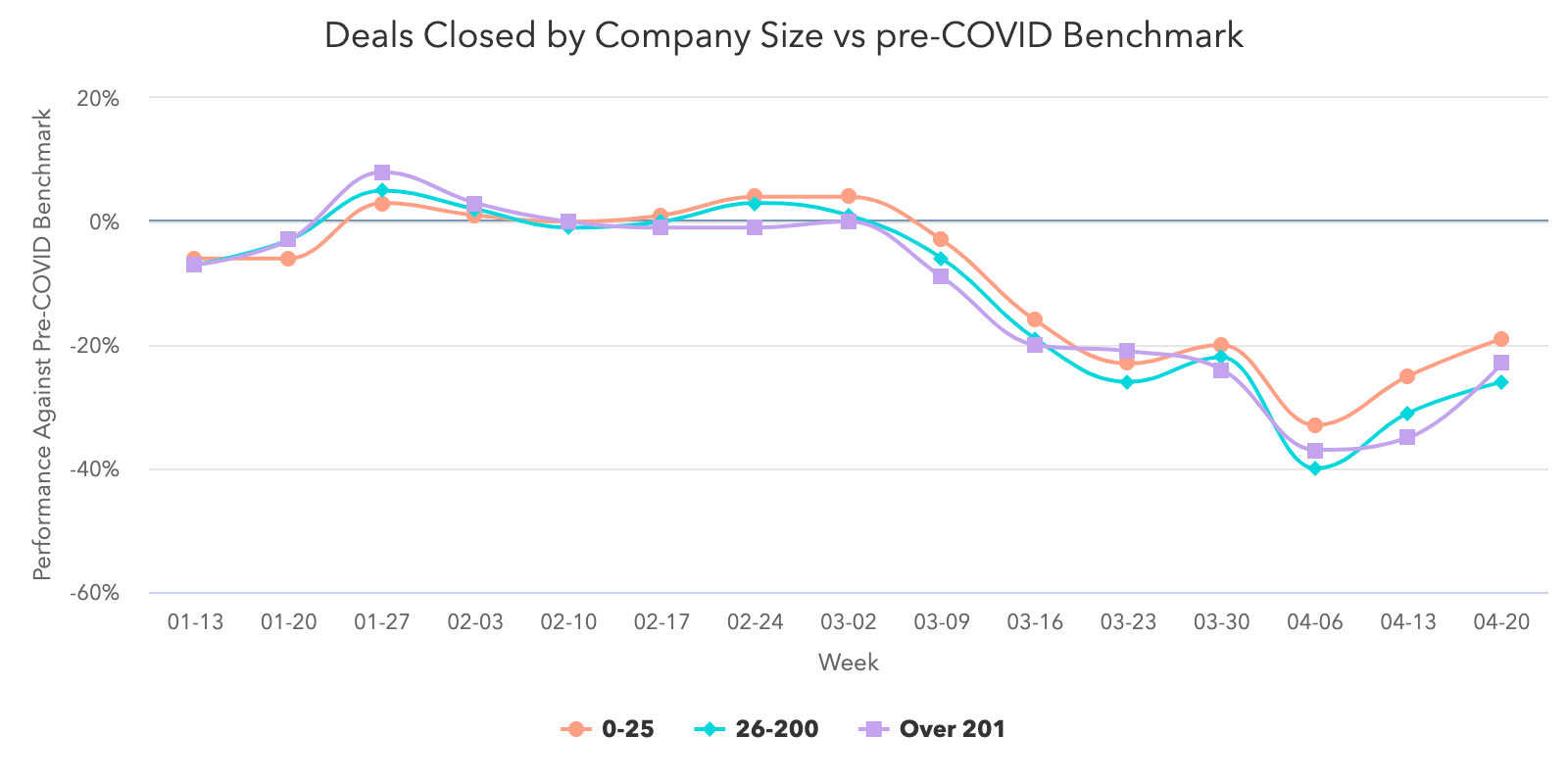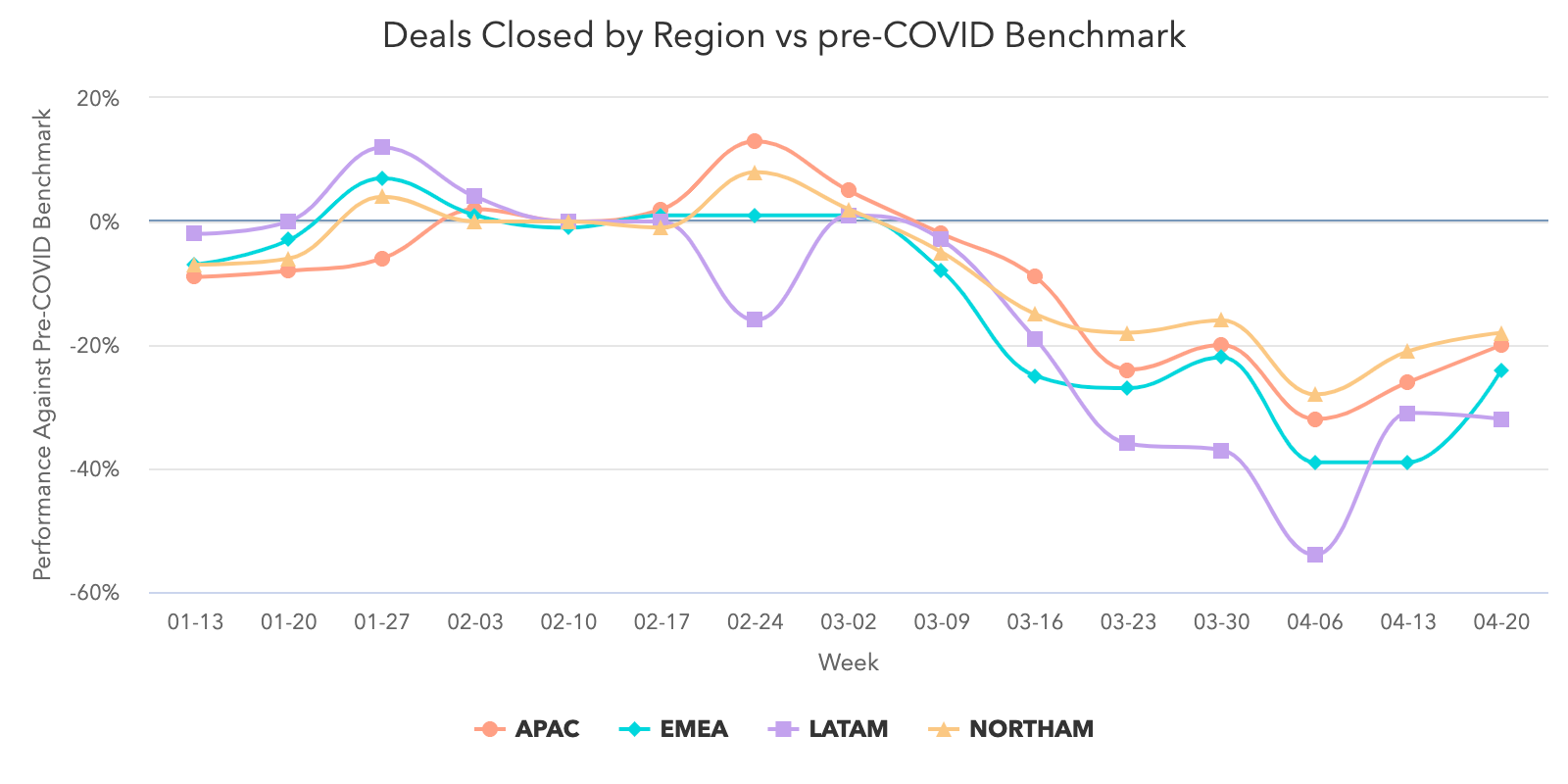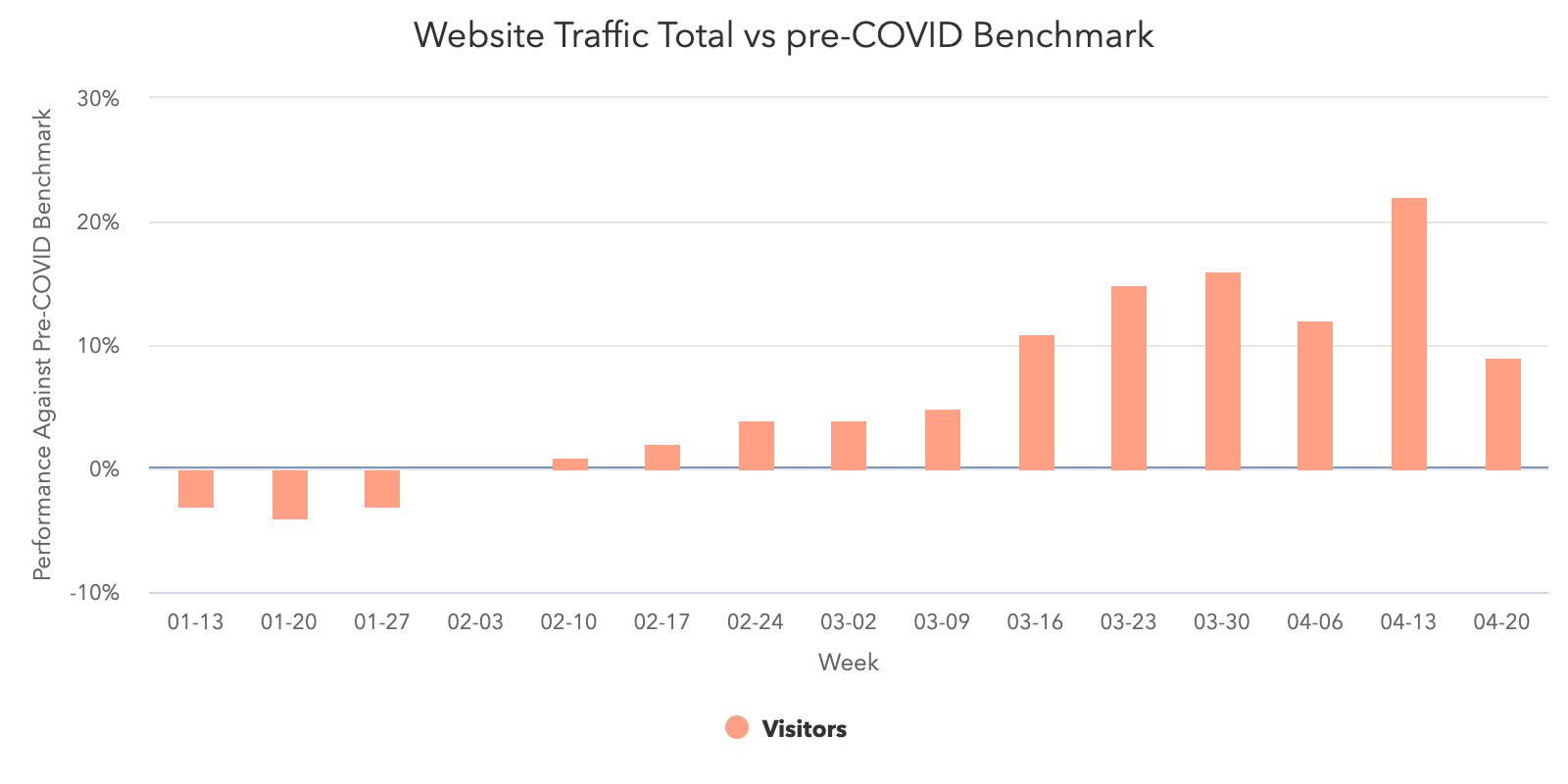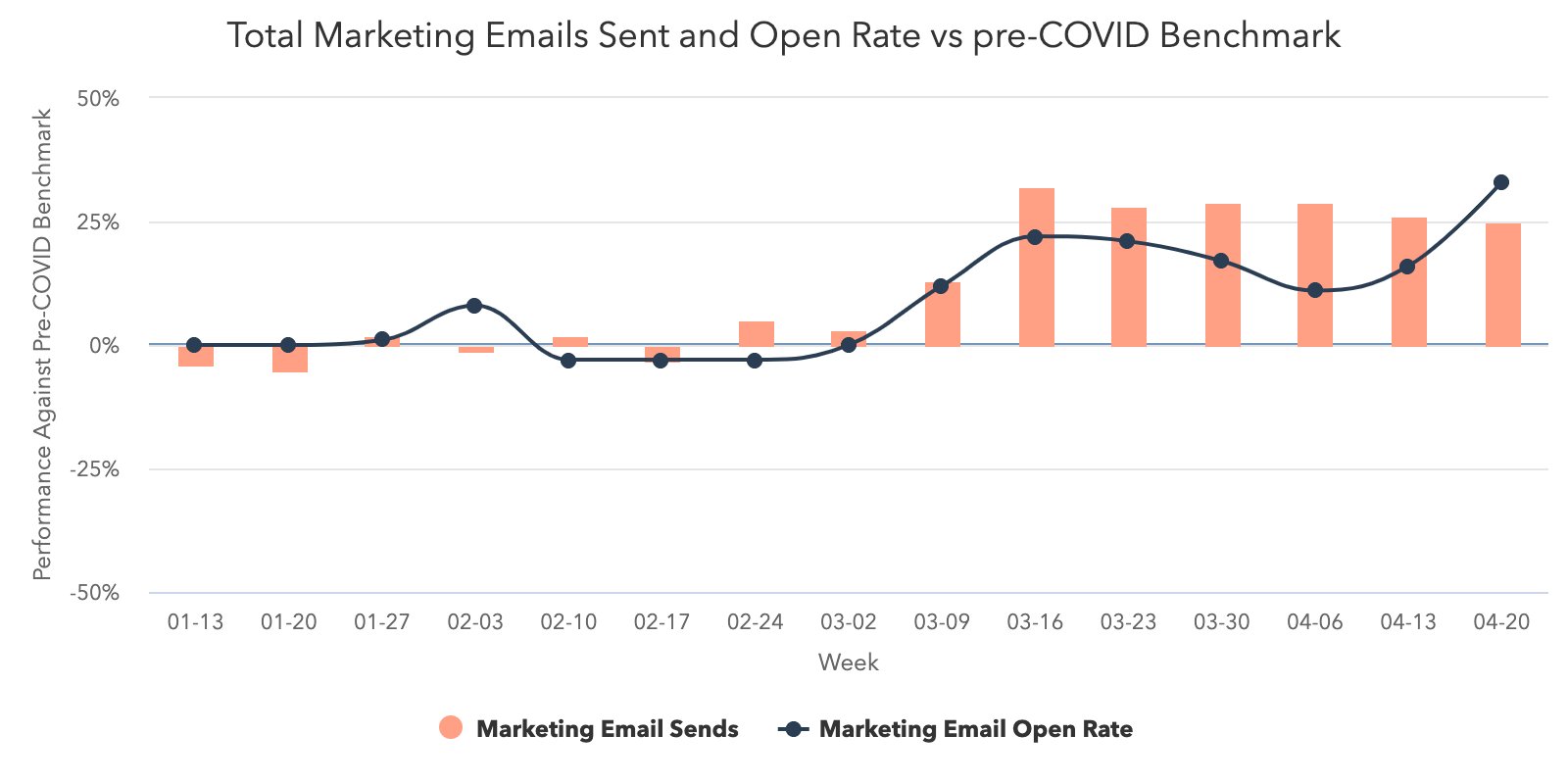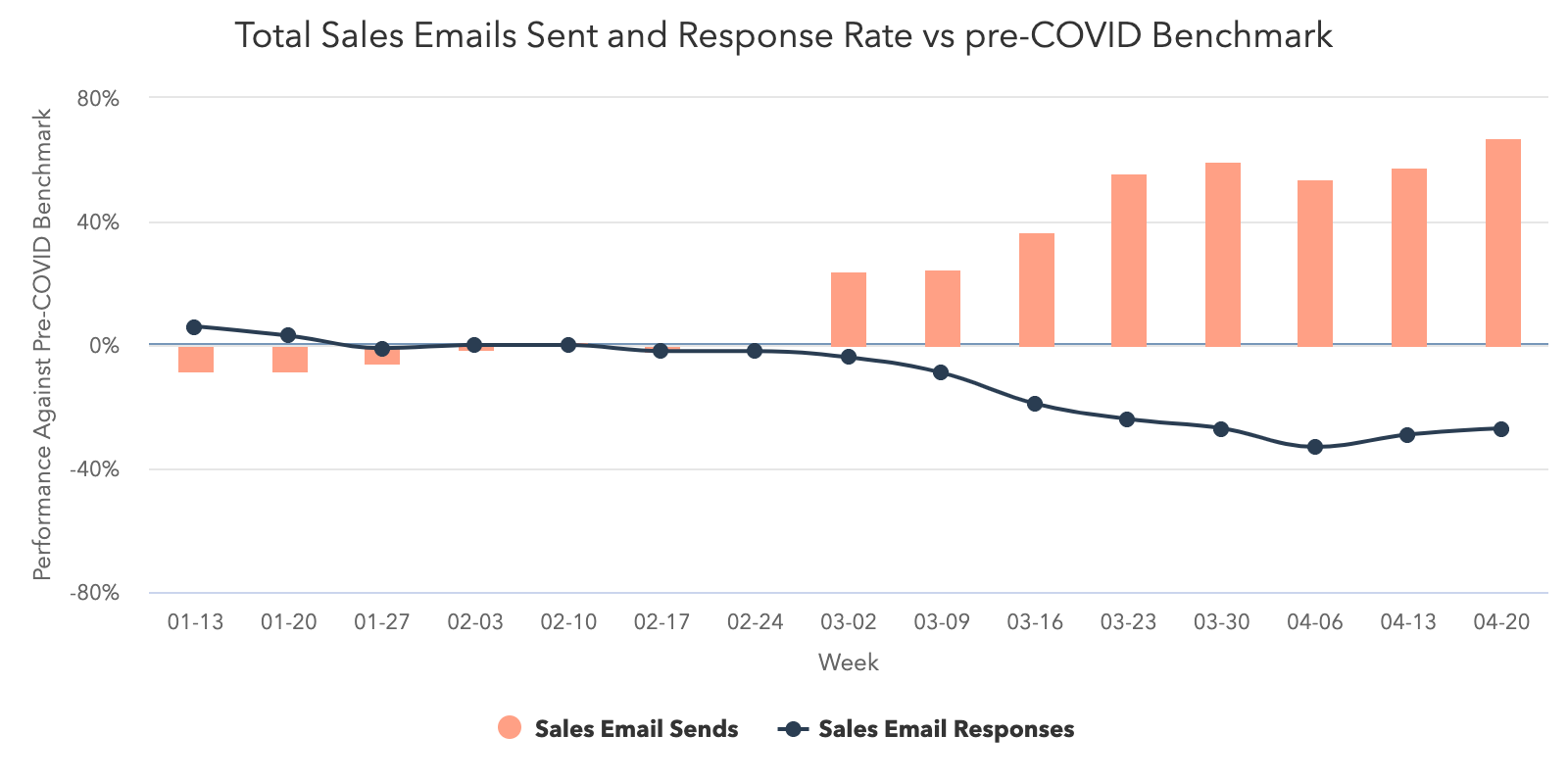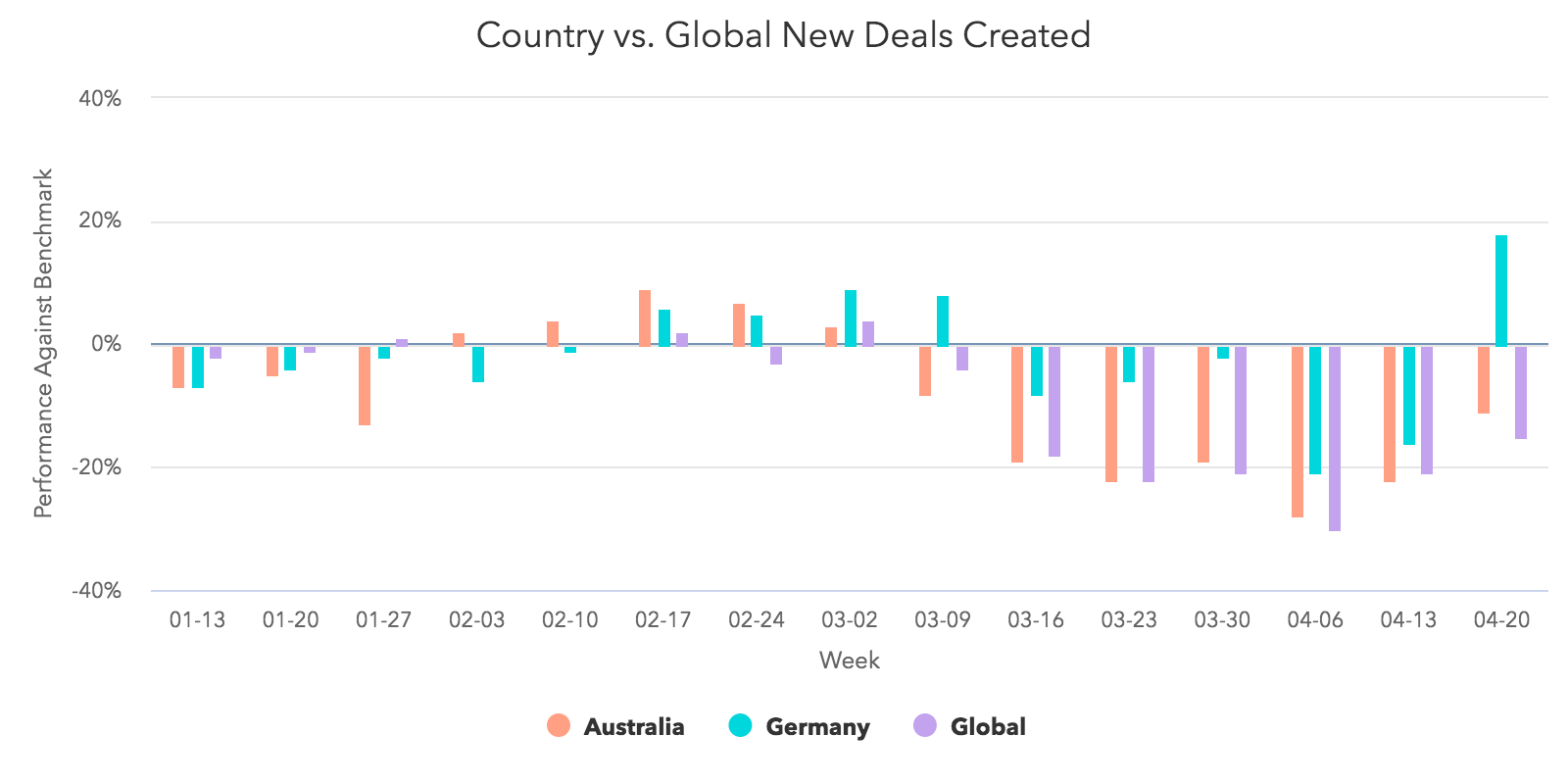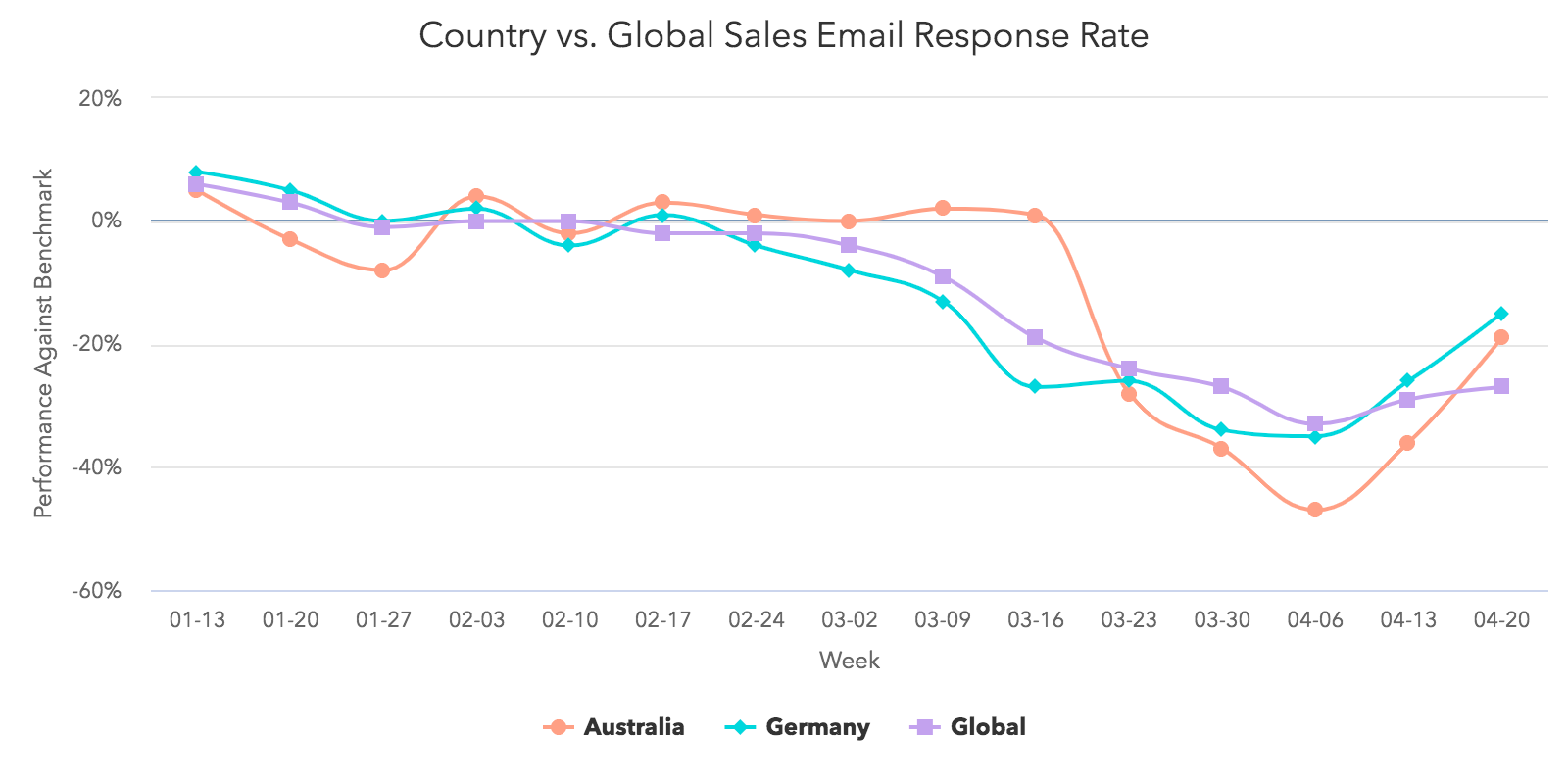Ask any successful sports coach how they win so many games, and they’ll tell you they have a unique plan for every single game they coach. To have a fighting chance against any of their opponents, they need to prepare a specific game plan tailored to each of their opponents’ strengths and weaknesses. Otherwise, they’ll get crushed.
The same logic applies to business. If you want to build a thriving company that can pull ahead of the competition, you need to prepare yourself for battle before you break into a market. Because companies who can find gaps in your business model will quickly learn how to fill those gaps and solve your customers’ problems better than you can.
The business world moves fast, and it’s full of ambitious companies scrambling to gain the majority of their industry’s market share. So how do you keep up? Writing a viable business plan and following it religiously is one of the most important first steps.
Business plans guide you along the rocky journey of growing a company. Referencing one throughout your voyage will keep you on the path toward success. And if your business plan is compelling enough, it can also convince investors to give you funding.
But how do you actually write a viable and convincing business plan?
Below, let's review the format of a business plan and sample business plans you can use to inspire your own.
Business Plan Format
Before you get started on your business plan, you might be wondering, "Where do I start? How should I format this?"
Typically, a business plan is a document that will detail how a company will achieve its goals.
Most business plans include the following sections:
- Executive summary: This section will include an overview of the company, your unique value proposition, and a team overview.
- Market opportunity: This is where you'll detail the opportunity in the market. Where is the gap in the current industry and how will your product fill that gap?
- Key features and benefits: At some point in your business plan, you'll review the key features and benefits of your products and/or services.
- Pricing and revenue: This is where you'll discuss your cost structure and various revenue streams.
- Target audience: This section will describe who your customer segments are in detail. What is the demographic and psychographic information of your audience?
- Marketing strategy: Here, you'll discuss how you'll acquire new customers with your marketing strategy.
- Competitive landscape: This is where you'll detail who the top competitors are.
- Financials: This is where you'll detail the funding that's required and discuss investment opportunities.
While some business plans might include more or less information, these are the key details you'll want to include.
Keep in mind, that each of these sections will be formatted differently. Some may be in paragraph format, while others will be in charts.
Now that you know what's included and how to format a business plan, let's review some templates.
Sample Business Plan Templates
1. HubSpot's Downloadable Business Plan Template
We created a business plan template for entrepreneurs.
 Click here to download the template.
Click here to download the template.
The template is designed as a guide and checklist for starting your own business, so you’ll learn what to include in each section of your business plan and how to do it. There’s also a list for you to check off when you finish each section of your business plan.
Strong game plans help coaches win games and help businesses rocket to the top of their industries. So if you dedicate the time and effort required to write a viable and convincing business plan, you’ll boost your chances of success and even dominance in your market.
2. HubSpot's One-Page Business Plan
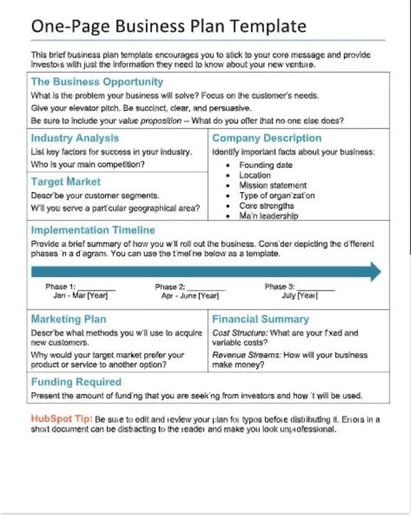
The business plan linked above was created here at HubSpot, and is perfect for businesses of any size -- no matter how much strategy they still have to develop.
Including fields such as Company Description, Required Funding, and Implementation Timeline, this one-page business plan gives businesses a framework for how to build their brand and what tasks to keep track of as they grow. Then, as the business matures, it can expand on its original business plan with a new iteration of the above document.
3. ThoughtCo’s Sample Business Plan
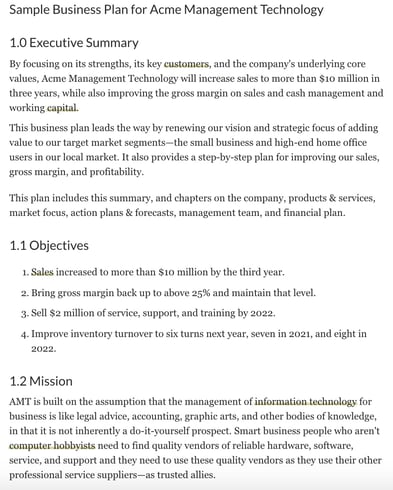
If you want to reference an actual business plan while writing your own, ThoughtCo’s got you covered. They created a fictional company called Acme Management Technology and wrote an entire business plan for them.
Using their sample business plan as a guide while filling out your own will help you catch and include small yet important details in your business plan that you otherwise might not have noticed.
4. BPlan’s Free Business Plan Template
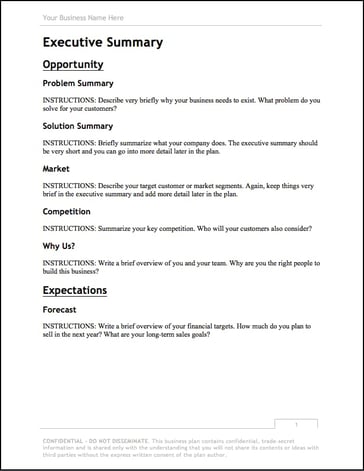
One of the more financially oriented sample business plans in this list, BPlan’s free business plan template dedicates many of its pages to your business’ financial plan and financial statements.
After filling this business plan out, your company will truly understand its financial health and the steps you need to take to maintain or improve it.
5. Harvard Business Review’s “How to Write a Winning Business Plan”
Most sample business plans teach you what to include in your business plan, but this Harvard Business Review article will take your business plan to the next level -- it teaches you the why and how behind writing a business plan.
With the guidance of Stanley Rich and Richard Gumpert, co-authors of Business Plans That Win: Lessons From the MIT Enterprise Forum, you'll learn how to write a convincing business plan that emphasizes the market demand for your product or service and the financial benefits investors can reap from putting money into your venture, rather than trying to sell them on how great your product or service is.
6. HubSpot’s Complete Guide to Starting a Business
If you’re an entrepreneur, you know writing a business plan is one of the most challenging first steps to starting a business. Fortunately, with HubSpot's comprehensive guide to starting a business, you'll learn how to map out all the details of your business by understanding what to include in your business plan and why it’s important to include them. The guide also fleshes out an entire sample business plan for you.
If you need further guidance on starting a business, HubSpot's guide can teach you how to make your business legal, choose and register your business name, fund your business, gives information about small business tax, and provides marketing, sales, and service tips.
7. Panda Doc’s Free Business Plan Template
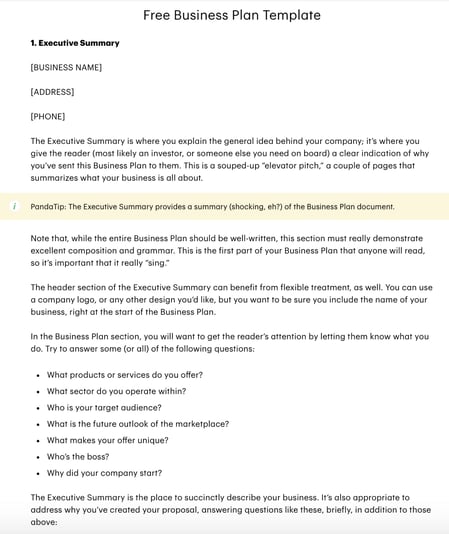
Panda Doc’s free business plan template is one of the more detailed and fleshed out sample business plans on this list. It describes what you should include in each of its sections, so you don't have to come up with everything from scratch.
Once you fill it out, you’ll fully understand your business’ nitty gritty details and how all of its moving parts should work together to contribute to your business’ success.
8. Small Business Administration Free Business Plan Template
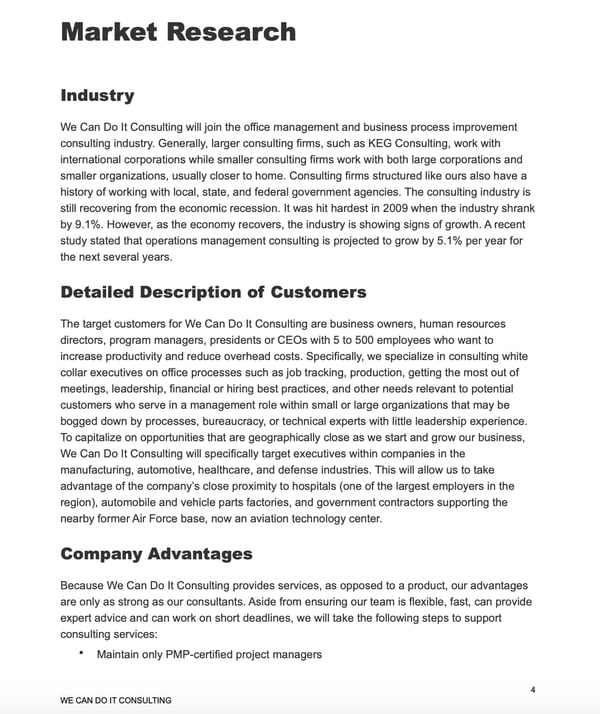
The Small Business Administration offers several free business plan templates that can be used to inspire your own plan. Before you get started, you can decide what type of business plan you need -- a traditional or lean start-up plan.
Then, you can review the format for both of those plans and view examples of what they might look like.
9. Culina Sample Business Plan
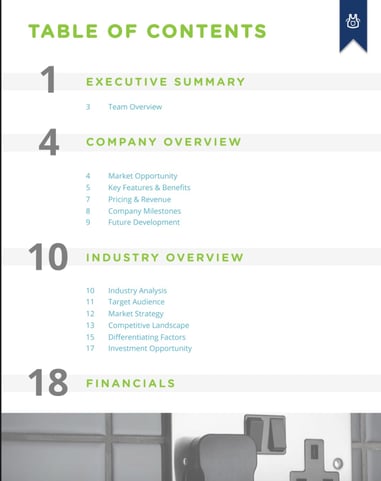
Culina's sample business plan is a great template to use if you just want to fill in your information. You can also use this template as a guide while you're gathering important details. After looking at this sample, you'll have a better understanding of the data and research you need to do for your own business plan.
10. Plum Sample Business Plan

This is one of my favorite sample business plans, because you can see how implementing visuals can help tell the story of your brand. The images in this template are cutting edge, which makes sense for an innovative company like Plum. When you create your own business plan, make sure that the pictures and design you use make sense for your branding.
Additionally, the financial charts included are incredibly helpful if you're not sure what financial information to include.
11. LiveShopBuy Sample Business Plan
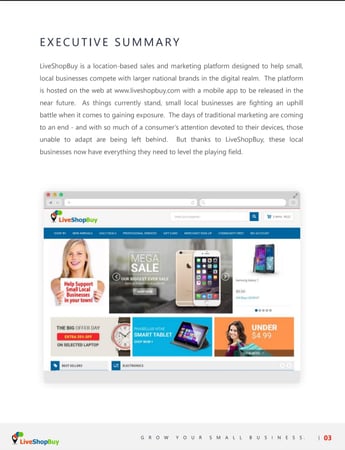
With this business plan, the focus is the investment opportunity. This is an excellent template to use if you're going to use your business plan as a means to receive funding. The investment opportunity section is placed right up front and is several pages long. Then, the plan goes into more detail about the company synopsis industry analysis.
When you're first getting starting on your business plan, it can be daunting. That's why it's important to make sure you understand the format and information you'll want to include. Then, you can use a template to guide your process.
Editor's note: This post was originally published in November 2018 and has been updated for comprehensiveness.
from Marketing https://ift.tt/2FbIkiH
via

